10 results in African Identities: Past and Present
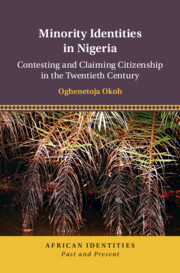
Minority Identities in Nigeria
- Contesting and Claiming Citizenship in the Twentieth Century
- Coming soon
-
- Expected online publication date:
- July 2025
- Print publication:
- 31 July 2025
-
- Book
- Export citation
Building the African Nation
- The African Association and Pan-Africanism in Twentieth Century East Africa
- Coming soon
-
- Expected online publication date:
- July 2025
- Print publication:
- 31 July 2025
-
- Book
- Export citation
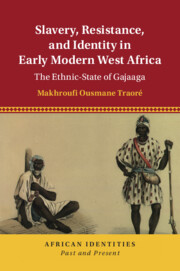
Slavery, Resistance, and Identity in Early Modern West Africa
- The Ethnic-State of Gajaaga
-
- Published online:
- 16 November 2023
- Print publication:
- 30 November 2023
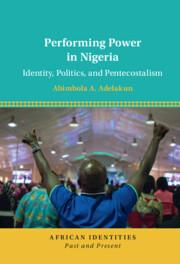
Performing Power in Nigeria
- Identity, Politics, and Pentecostalism
-
- Published online:
- 24 August 2023
- Print publication:
- 07 September 2023
-
- Book
-
- You have access
- Open access
- Export citation
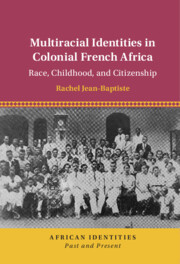
Multiracial Identities in Colonial French Africa
- Race, Childhood, and Citizenship
-
- Published online:
- 25 May 2023
- Print publication:
- 08 June 2023
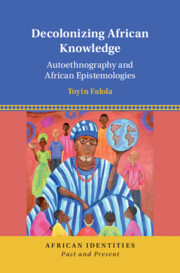
Decolonizing African Knowledge
- Autoethnography and African Epistemologies
-
- Published online:
- 23 June 2022
- Print publication:
- 14 July 2022
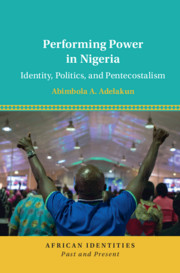
Performing Power in Nigeria
- Identity, Politics, and Pentecostalism
-
- Published online:
- 29 October 2021
- Print publication:
- 11 November 2021
-
- Book
- Export citation
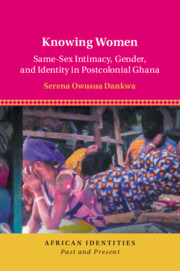
Knowing Women
- Same-Sex Intimacy, Gender, and Identity in Postcolonial Ghana
-
- Published online:
- 07 January 2021
- Print publication:
- 21 January 2021
-
- Book
-
- You have access
- Open access
- Export citation
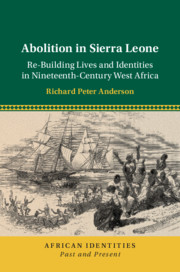
Abolition in Sierra Leone
- Re-Building Lives and Identities in Nineteenth-Century West Africa
-
- Published online:
- 09 January 2020
- Print publication:
- 30 January 2020
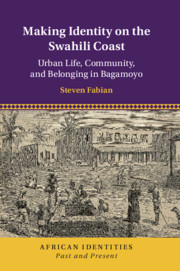
Making Identity on the Swahili Coast
- Urban Life, Community, and Belonging in Bagamoyo
-
- Published online:
- 28 October 2019
- Print publication:
- 07 November 2019

